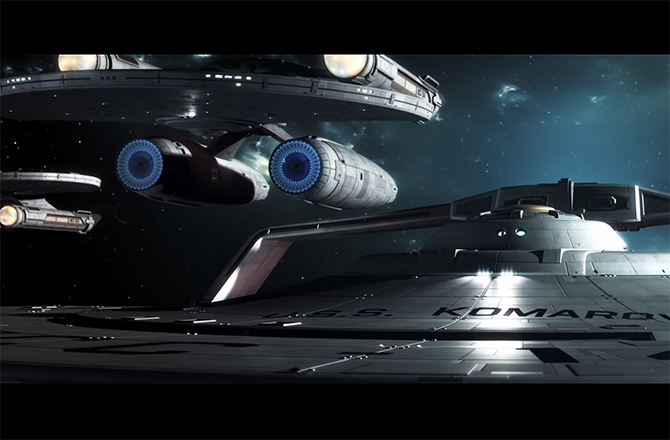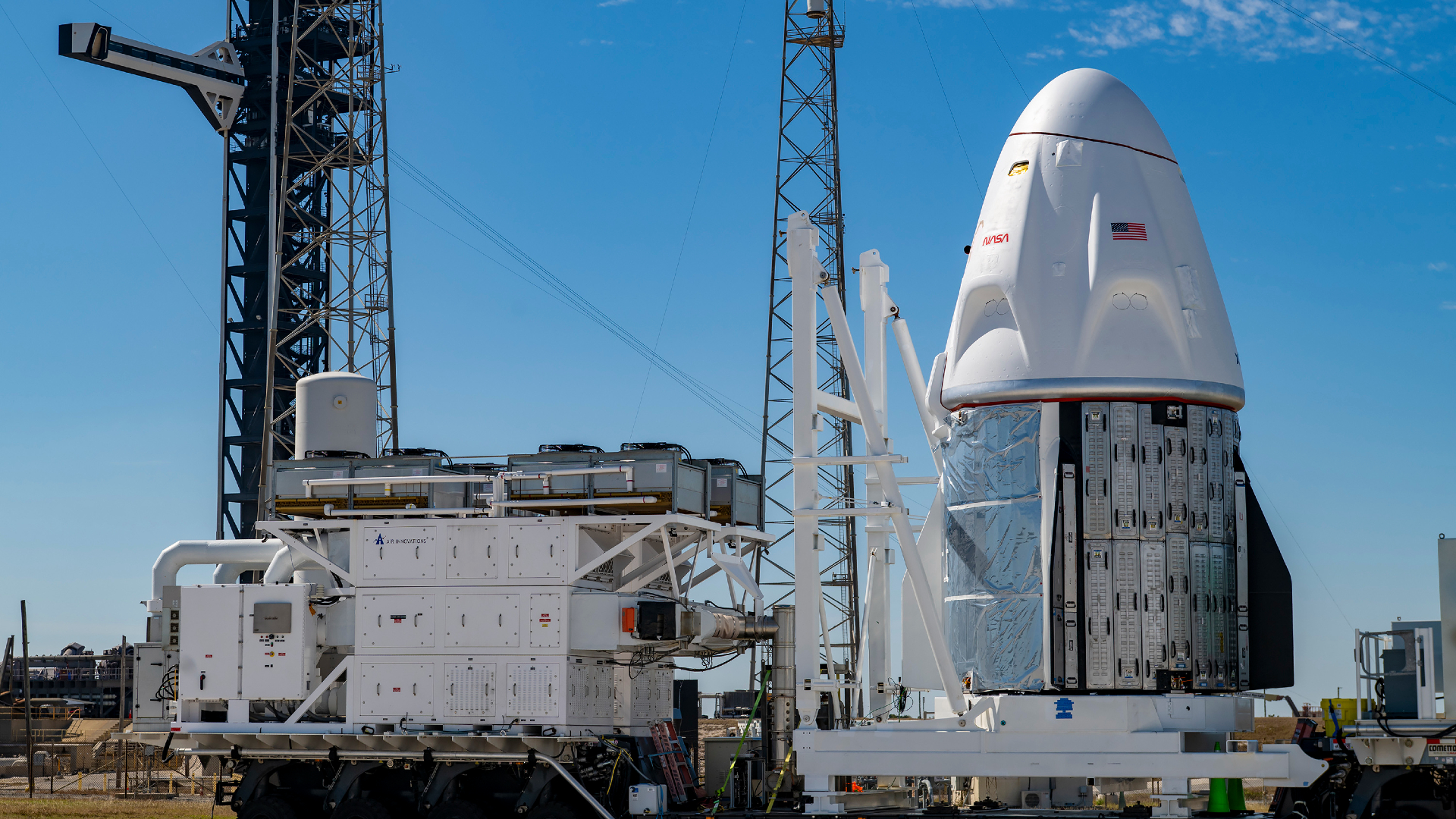Does Science Drive the Success of 'Star Trek'?

Breaking space news, the latest updates on rocket launches, skywatching events and more!
You are now subscribed
Your newsletter sign-up was successful
Want to add more newsletters?

Delivered daily
Daily Newsletter
Breaking space news, the latest updates on rocket launches, skywatching events and more!

Once a month
Watch This Space
Sign up to our monthly entertainment newsletter to keep up with all our coverage of the latest sci-fi and space movies, tv shows, games and books.

Once a week
Night Sky This Week
Discover this week's must-see night sky events, moon phases, and stunning astrophotos. Sign up for our skywatching newsletter and explore the universe with us!

Twice a month
Strange New Words
Space.com's Sci-Fi Reader's Club. Read a sci-fi short story every month and join a virtual community of fellow science fiction fans!
With several "Star Trek" fan projects getting funded by independent crowdsourcing platforms lately, it's clear the franchise still has a lot of support after nearly five decades since "Star Trek: The Original Series" first aired.
The fan film "Star Trek: Axanar" nearly doubled its goal earlier this year and raised $526,260 for four "episodes" of a feature-length movie. "For the Love of Spock," a documentary film about Star Trek star Leonard Nimoy, raised more than $660,000 in an effort to find as much original footage as possible from Nimoy's many projects. And "Star Trek: Renegades" was released on YouTube, getting more than half a million views since August.
PHOTOS: How Close Is This Star Trek Tech?
Spin-off books have raised substantial amounts of money, such as "Ladies of Kirk" (more than $11,000) and the comic book "Chief O'Brien at Work," soaring well past $50,000. It seems there is a lot of interest in the cosmos for Star Trek.
What's more, modern technology is reaching a crossroads where many of the fantastical gadgets from the franchise are beginning to see light of day. [How 'Star Trek' Technology Works (Infographic)]
We have virtual reality lenses similar to holodecks, for example, and tablets that Captain Jean Luc Picard could have used on the Enterprise's deck. 3-D printing is becoming an industry that could be likened to the "Star Trek: The Next Generation" "replicator." Also, physics is currently tackling some of the underlying quantum mechanisms that could allow the warp drive and transporter to become a reality in the future.
ANALYSIS: Star Trek Continues to Inspire
Breaking space news, the latest updates on rocket launches, skywatching events and more!
But how much of Star Trek's success comes from the science?
According to a physicist that has written guides to Star Trek's science, not very much. It's the story that determines the science, not the other way around.
"People are fascinated by the possibilities that Star Trek offers for the future," said Lawrence Krauss, a theoretical physicist at Arizona State University who is best known by Star Trek fans as the author of "The Physics of Star Trek" (1995). "What it does is seduces people into getting interested in some of the topics."
There was some knowledge of science embedded in the show, however. Mike Okuda (a graphic designer on "Star Trek: The Next Generation") included some information on quantum mechanics when working on the transporter, for example, Krauss said. But science advisors for the show mostly focus on making sure the technical dialogue in the show sounds believable -- even when talking about fanciful warp drives.
ANALYSIS: Star Trek Boldly Led Us Into the Future
One reason for Star Trek's renaissance could be the talk in the last couple of years of bringing people to Mars, Krauss added, whether it be a one-way trip on Mars One, or a fictional trip in Andy Weir's "The Martian."
But Krauss believes that step is far from reality, at least for now. "Space is expensive and dangerous and there is no way around it," he said.
This article was provided by Discovery News.

Elizabeth Howell (she/her), Ph.D., was a staff writer in the spaceflight channel between 2022 and 2024 specializing in Canadian space news. She was contributing writer for Space.com for 10 years from 2012 to 2024. Elizabeth's reporting includes multiple exclusives with the White House, leading world coverage about a lost-and-found space tomato on the International Space Station, witnessing five human spaceflight launches on two continents, flying parabolic, working inside a spacesuit, and participating in a simulated Mars mission. Her latest book, "Why Am I Taller?" (ECW Press, 2022) is co-written with astronaut Dave Williams.
